Brewing kombucha is a controlled growth of bacteria and yeast, meaning you need to keep your supplies clean to prevent bad germs from sneaking in! Here’s how to sterilize and clean your kombucha supplies.
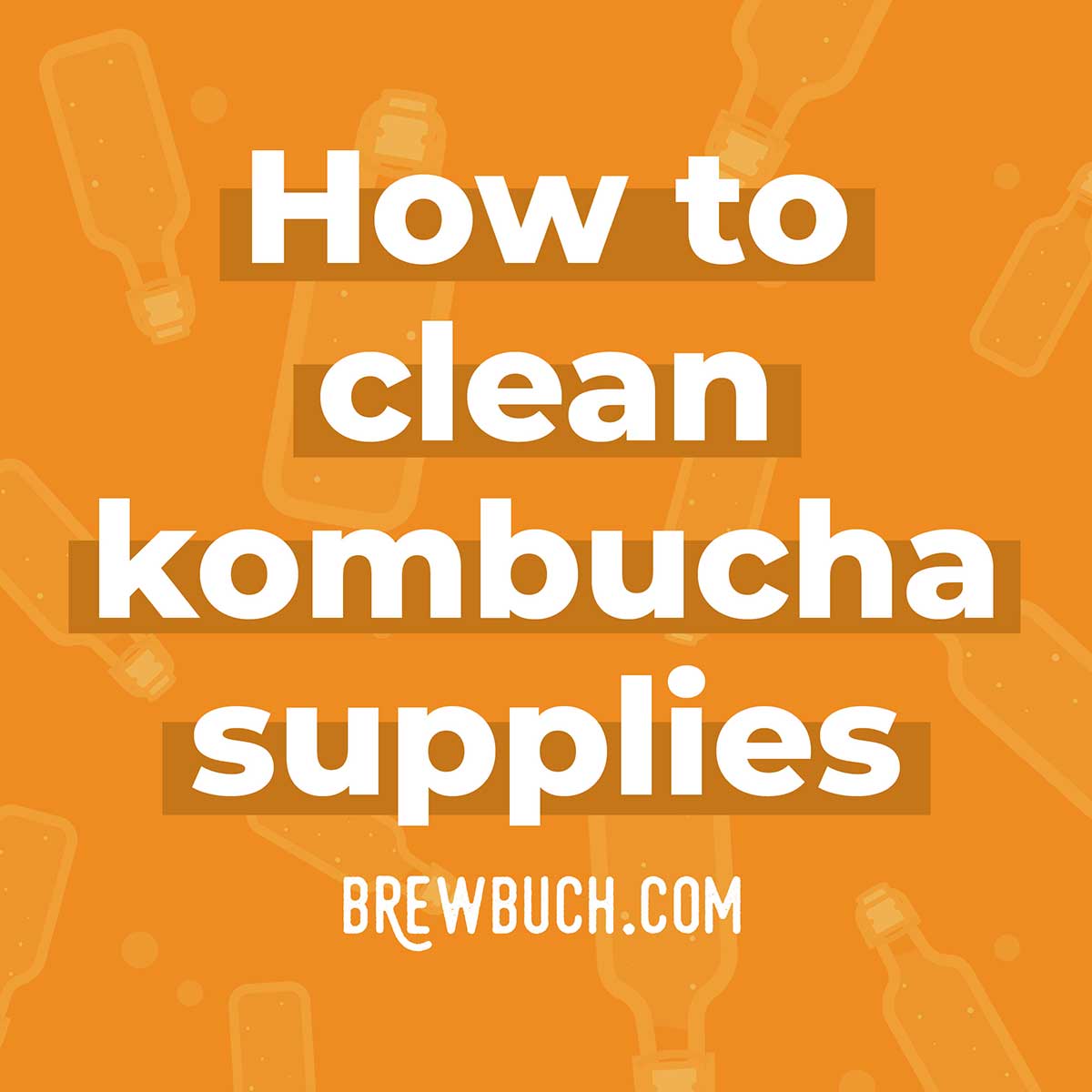
Making kombucha, along with any fermentation, is a practice in controlling microorganisms. Balancing the good bacteria and yeast against the bad guys to prevent mold and create delicious kombucha!.
The kombucha naturally defends itself somewhat, with its acidic, low pH killing off many potential pathogens (especially with continuous brewing). But with clean equipment, delicious kombucha success is inevitable! Here’s how I sterilize and clean my kombucha supplies.
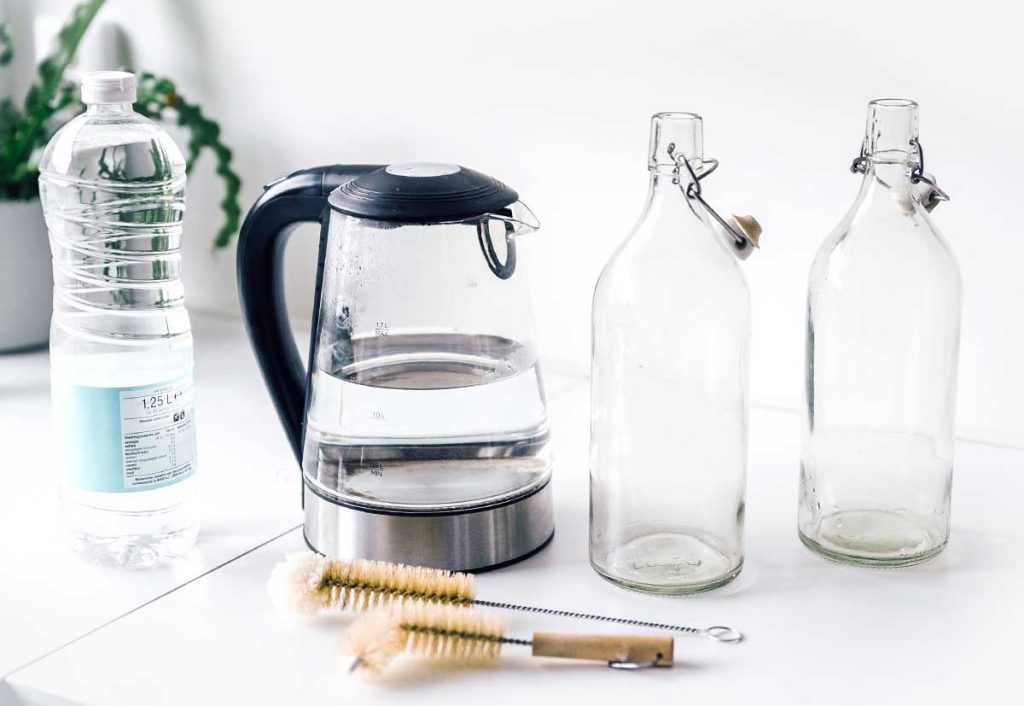
How to clean kombucha supplies
I follow two general steps when cleaning my kombucha gear:
- Rinse with distilled white vinegar: Highly acidic and perfect for killing off the bad bacteria that may be hiding out on your supplies. Simply swish it around your bottles and jugs, or pour it over your supplies (such as funnels or spoons). (Note: Do not use raw or apple cider vinegar, which may contain nematodes called vinegar eels!)
- Rinse with hot hot water: What the vinegar doesn’t kill, the hot water will! Carefully pour hot water into bottles and jugs, or submerge smaller supplies in the water. Swish it around so that it touches every surface, then pour out. Let supplies cool before pouring in the kombucha. (Shocking glass with hot water can cause it to crack – to prevent this, add just a little water and swish it around to warm up the glass before adding more!)
With your newly sterilized supplies, it’s important to pay attention to what other materials might be touching your equipment and ensure that they’re also clean. For instance, rather than use hand towels use paper towels. Avoid using a dirty kitchen sponge, which is laden with bacteria, and opt for a brand new sponge or paper towels instead.
And don’t forget to wash your hands! Similar to above, rinse your hands with vinegar then with warm water before touching your supplies or SCOBY.
Finally, avoid using soap, especially antibacterial soap. Antibacterial soap is indiscriminate in the bacteria it kills, and will hurt not only the bad but also the good bacteria (and in turn, hurt your SCOBY).
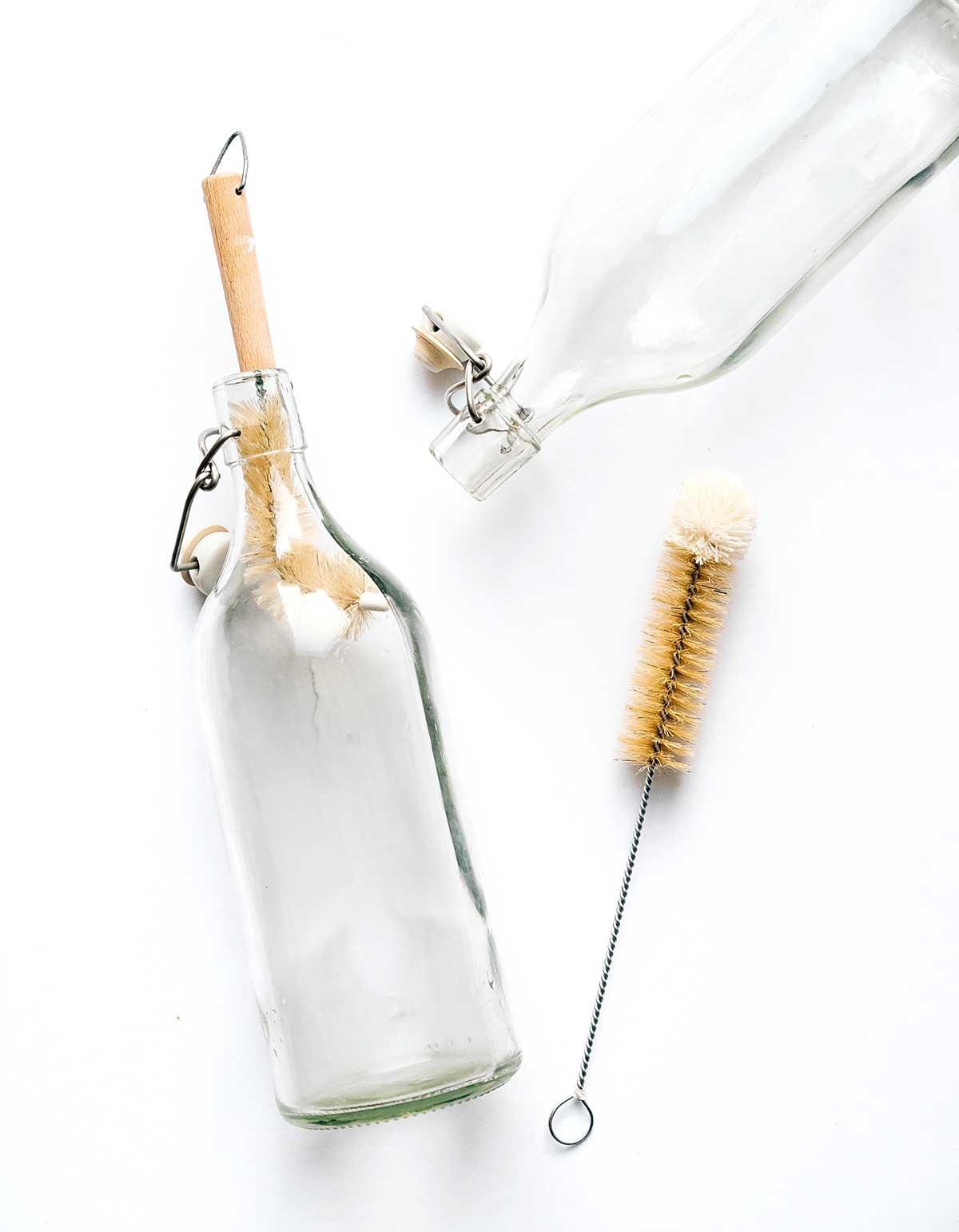
Need a deep clean?
Brushes: To remove crusted on debris (especially for the inside of 2nd fermentation bottles), it may be helpful to use bottle brushes.
Dishwasher: Have a lot of bottles that need cleaning? Stand them upside down in your dishwasher on the bottom rack. Run the dishwasher without any other dishes and without soap on its hottest setting!
Sterilizers: If you’ve been having issues with mold and want to be sure the spores are eradicated, try a sterilizing solution like Five Star or 1 Step.
And that’s basically it! Keeping a clean fermentation station doesn’t require much work or upkeep, just a bit of thought into what is coming into contact with your supplies. Happy brewing!
“How often do you recommend cleaning the container if doing continuous brewing?”
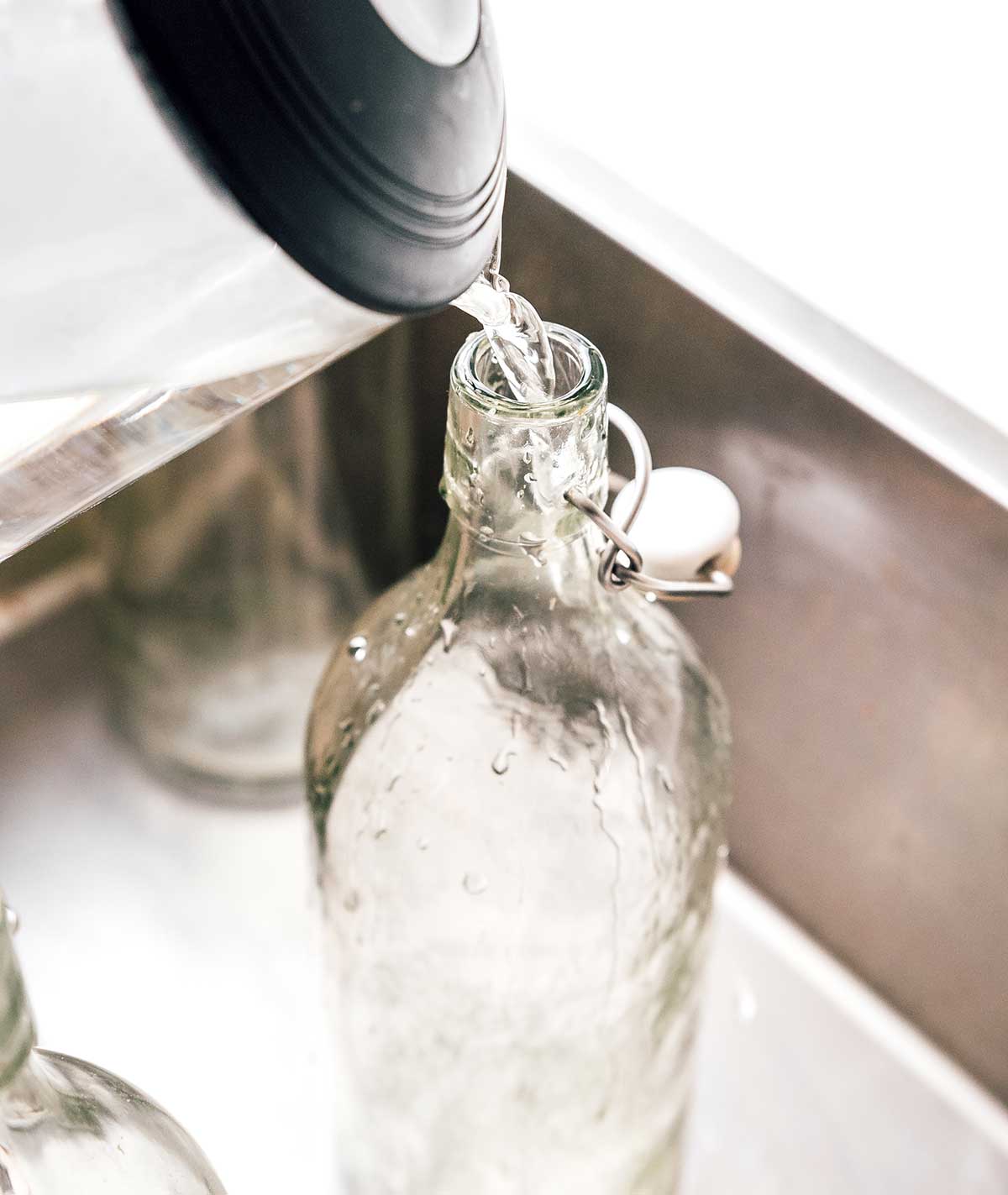
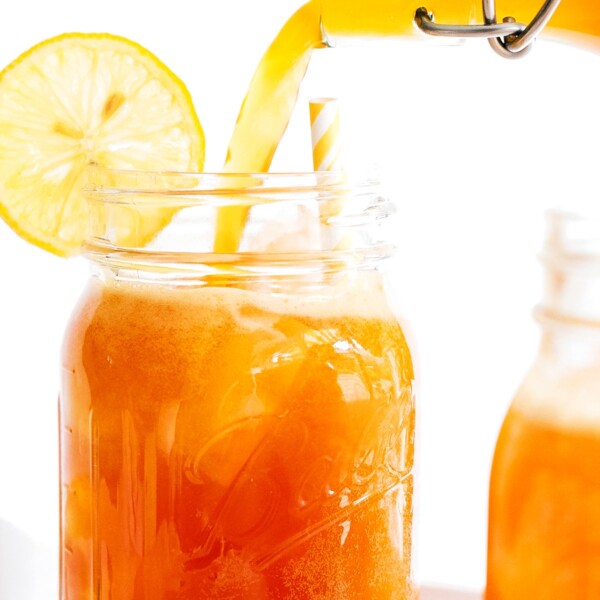
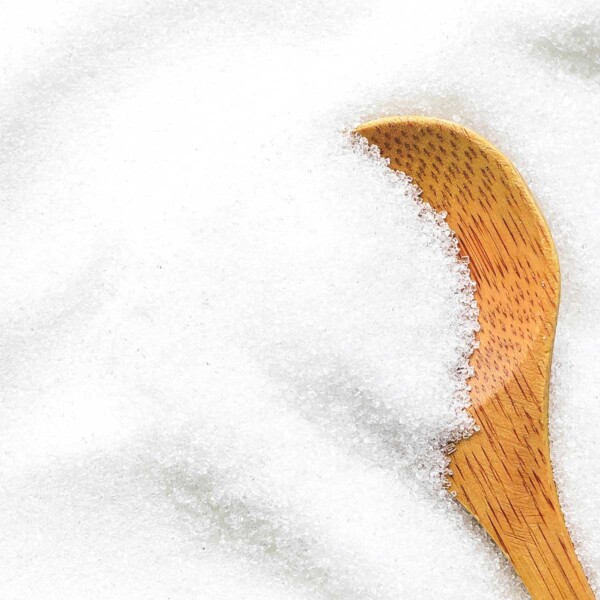

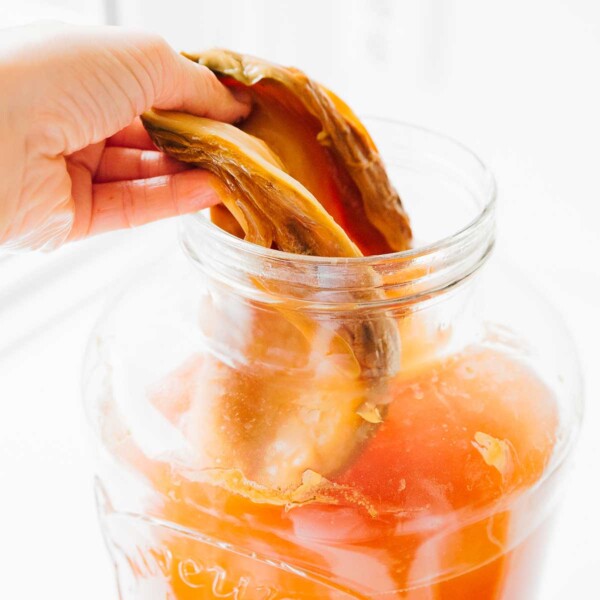
The link for the free PDF is not working. I enjoy your website and i am now making my second batch. So far, so good. I have done everything right i believe. Would be great if that link would work. Thank you
Here’s my printable PDF for brewing kombucha 🙂
How do I make a fruit flavored kambucha, I’m just starting making kambucha?
You can find all of my fruit flavors of kombucha here!
My kumbucha has brown sediment at its he bottom of f the 2nd fermentation in the small bottles . Should I have strained it before bottling? Can I strain it and put it back on n the bottle to ferment to get the carbonation? Thank you ! Hallie
That’s totally normal, and helps with carbonation! You can strain it before serving 🙂
Thank you for all your great info, I heard about kombucha *many moons* ago when a co-worker told me her Dad made it, & she thought I’d like to…took a few years but have been * brewing * for a few years now ….I love it! So easy & so much better than soda ( I have diabetes in my family ) …..So this works great ( & so refreshing too) I love sharing with my friends….
Thanks much,
Jo
Hi, I have a very dirty gallon jar that was sitting outside at my friend’s house, so it has dirt in it (but it was free!). Would it be ok to use regular dish soap in it if I rinsed well and used vinegar and boiling water afterwards?
Yes absolutely! Be careful with the boiling water that it doesn’t break the glass.
Thank you for the great tips! I am planning to use cotton bottle covers. Could you also help me understand how do I keep my cotton bottle covers clean?
As long as the kombucha doesn’t touch them, I think they’ll stay pretty clean without any extra steps!
I also make wine as well now starting to make kombucha. For all my wine equipment I use One Step
no rinse sterilizing solution to sterilize all my equipment. Would this be a problem for sterilizing equipment to make kombucha?
This should work for buch as well! 😀
Hello beautiful soul,
I use H2O2 after cleaning with water and soap to sanitize my tools ,jars,bottles, jar covers
I just put enough drops in filtered water and spray anything ,leave it few minutes , then rinse with filtered water. Is that safe?
I think it would be safe!
Hi Sarah,
I am just starting my Kombucha and have two jars going as per instructions for starting to get scobies. I put one cup of store bought
kombucha divided into the two jars.
I was then looking at the first fermentation instructions and it also says that I need to put in another two cups of store bought kombucha, when do I stop using the store bought? Hopefully the next time I do the first fermentation on the next batch? Sorry for not comprehending your instructions and needing further clarification.
You can use the liquid in the jar with your SCOBY as starter, so you shouldn’t need to buy store bought again! 😀
I use StarSan, which I already have since I brew beer.